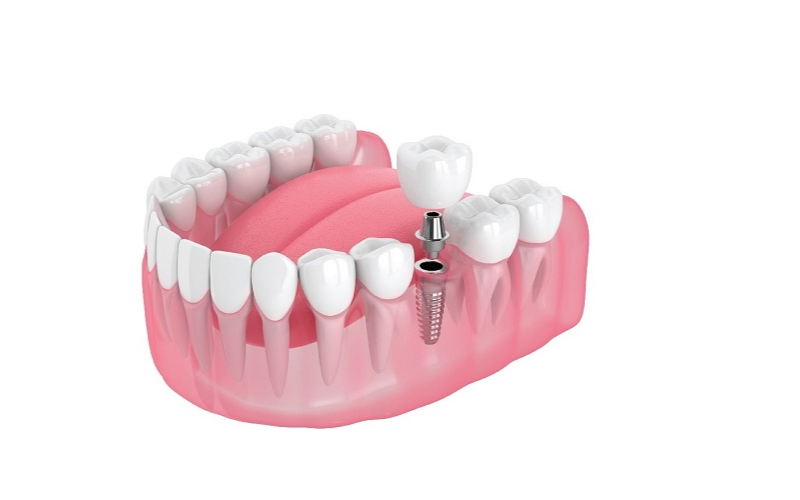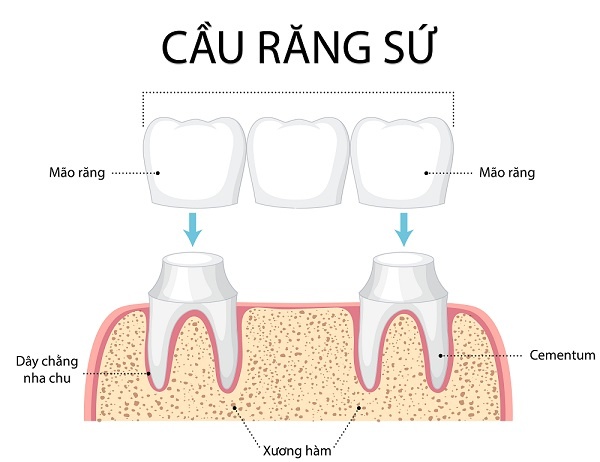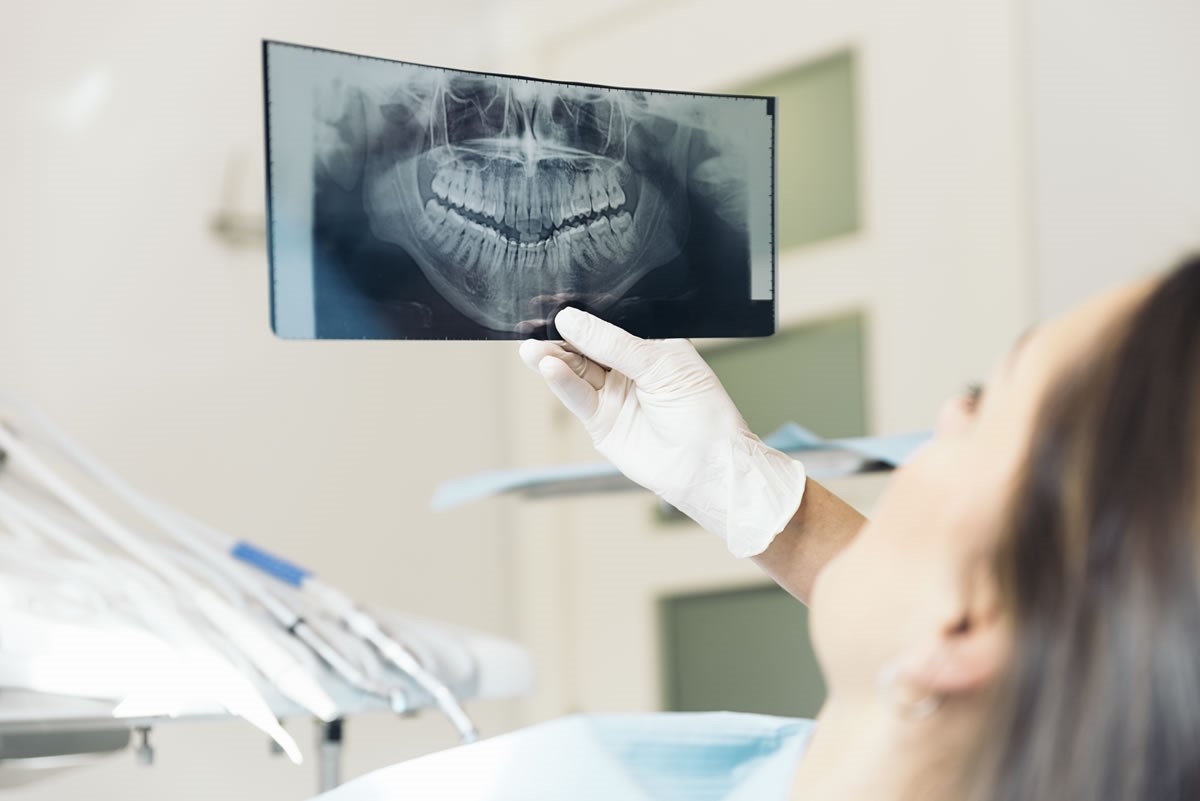Tooth loss not only affects aesthetics but also causes difficulties in chewing and communication. In cases of full or multiple tooth loss, removable dentures are a common restorative solution that improves chewing function and restores confidence. So, how much does it cost to make removable dentures? Let’s explore the details with Amanda Dental Clinic below!
What Are Removable Dentures?
Removable dentures consist of two main components: artificial teeth (made of plastic or porcelain) and the denture base (made of acrylic or alloy framework). These components are designed and combined into a unified structure that functions as a replacement for lost natural teeth.
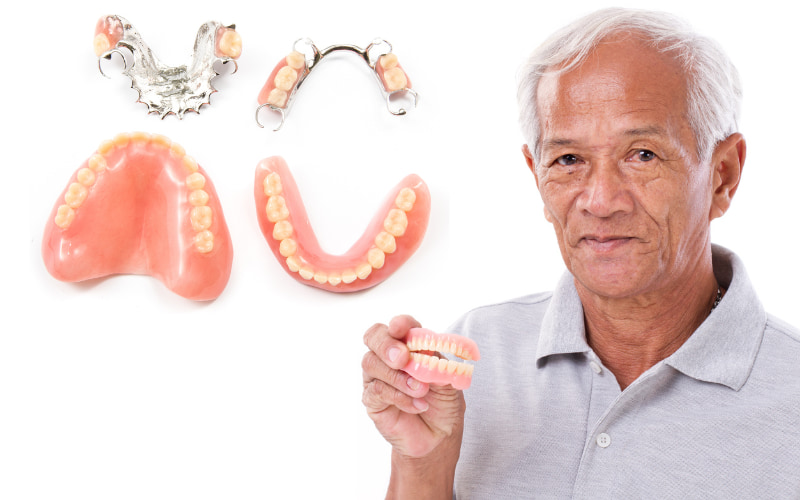
Removable dentures are a suitable option for most patients with full or multiple tooth loss. Depending on the number of remaining teeth, patients can choose between full or partial dentures:
- Full dentures: Designed for people who have lost all their teeth, with a structure similar to natural teeth.
- Partial dentures: For those with one or more remaining teeth, designed to fill gaps from missing teeth. Partial dentures often include clasps to attach to natural teeth for stability and to prevent shifting.
Who Should Use Removable Dentures?
Removable dentures are a popular restorative option suitable for many individuals. The following are common cases where removable dentures are recommended:
People with multiple or full arch tooth loss: The most common users. Removable dentures replace lost teeth, restore chewing function, and improve aesthetics.
People with limited financial means: Compared to dental implants or bridges, removable dentures are significantly more affordable, making them a practical option for those on a budget.
People with health conditions unsuitable for implants: Conditions like osteoporosis, uncontrolled diabetes, or heart issues may make implants unviable. In these cases, removable dentures offer a safe and effective alternative.
Elderly individuals: Seniors often experience significant tooth loss and may not be healthy enough for complex procedures. Removable dentures are easy to use and maintain, making them ideal for older patients.
Those seeking a temporary solution: In some cases, removable dentures are used temporarily while awaiting permanent restorative options.
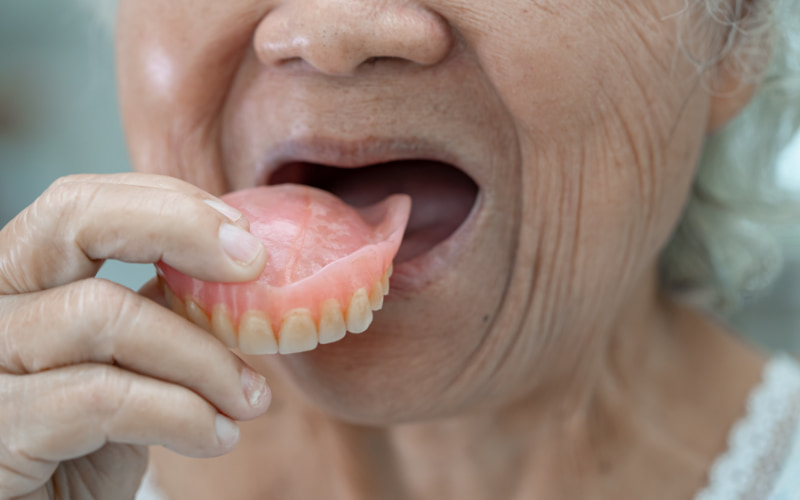
Should You Use Removable Dentures?
Whether or not to use removable dentures depends on oral condition, finances, and personal needs. Below are some pros and cons for your consideration:
Advantages
- Easy to remove and clean: Dentures can be flexibly removed, making cleaning and maintenance convenient. Replacement is quick and straightforward.
- Affordable cost: Compared to implants or fixed bridges, removable dentures are more economical, accessible to many users.
- Flexible usage: Can be used temporarily or long-term. They serve as a temporary solution while awaiting other restorations or as a permanent fixture.
- No surgery required: Unlike implants, no surgery is involved, ensuring safety and comfort for patients with health concerns.
Disadvantages
- Limited chewing power: They do not provide the same chewing efficiency as natural teeth or implants.
- Initial discomfort: Users may feel awkward or uncomfortable during initial use.
- Jawbone resorption: Removable dentures cannot prevent bone loss over time.
- Lower durability: Less durable than implants and may shift during eating or speaking.
- Possible gum issues: Poor hygiene may cause gum disease or bad breath.
Lower aesthetics: Plastic dentures are more easily recognized compared to ceramic ones, and the gum-colored base may lack natural appearance.
Lower aesthetics: Plastic dentures are more easily recognized compared to ceramic ones, and the gum-colored base may lack natural appearance.
Types of Removable Dentures
Removable dentures are classified based on several criteria, including material, restoration coverage, and support method. Specifically:
Acrylic Removable Dentures
Acrylic dentures are a basic type of removable dentures consisting of two components: the denture base and artificial teeth. The base is usually made from hard or flexible plastic, most commonly Acrylic or Biosoft. Generally, acrylic dentures are the most affordable but also heavier and less durable (around 1 year), and prone to looseness or breakage.
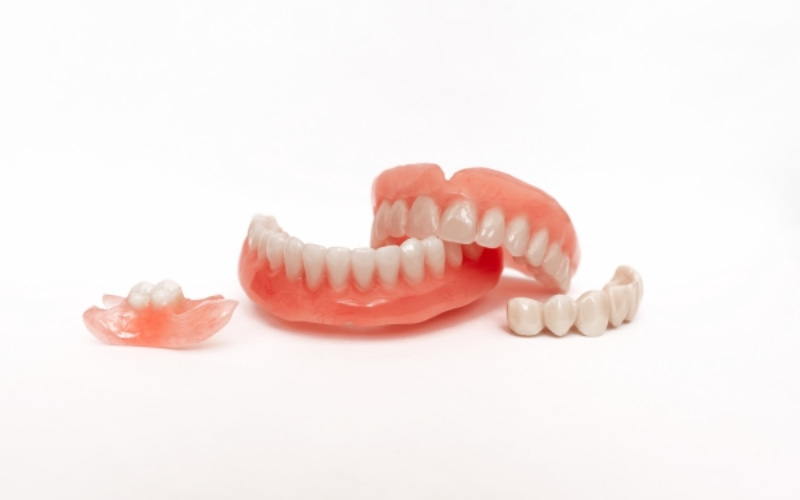
Metal Framework Dentures
These dentures have a plastic base but include a metal framework made from Ni-Cr or Titanium. Typically prescribed for partial tooth loss, they offer greater strength and a more compact design. However, they may affect natural teeth and lack aesthetic appeal.
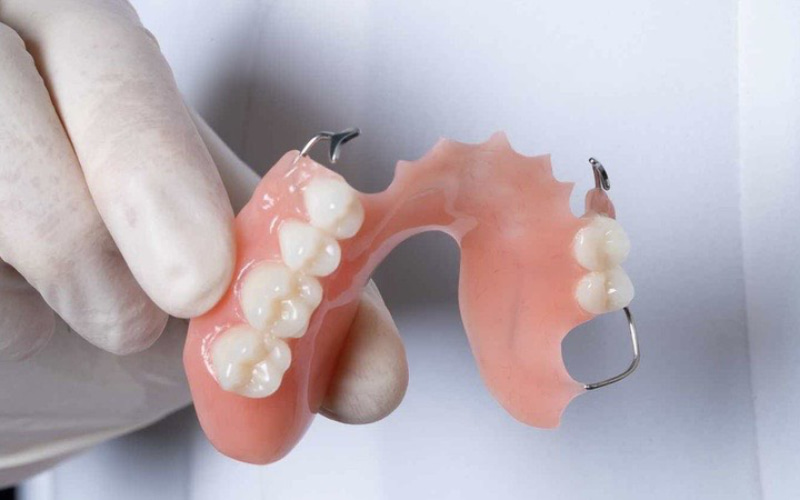
Implant-Supported Removable Dentures
These advanced dentures combine traditional removable dentures with implant technology. The dentist places at least two implants in the jawbone to anchor the denture using special attachments. Two main types include bar-retained and ball-retained overdentures.
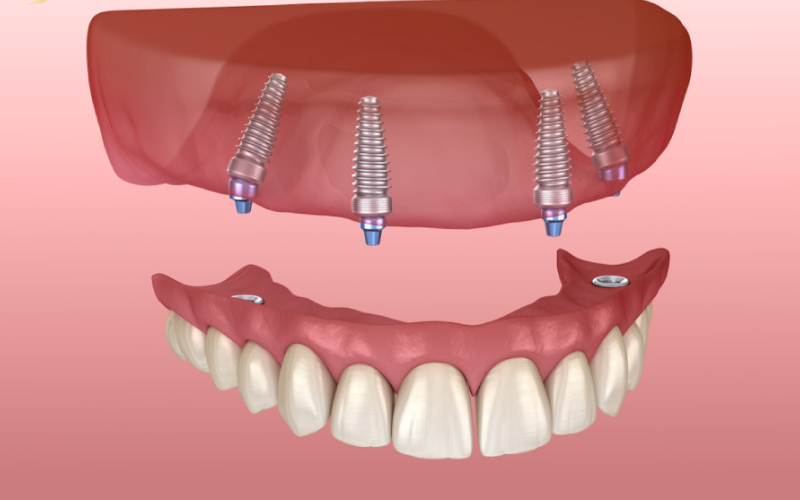
Standard Procedure for Making Removable Dentures
To ensure a proper fit and functional result, the denture-making process involves these steps:
Step 1: Examination and Consultation
The dentist performs dental imaging and X-rays to assess the oral condition and determine suitability for removable dentures. Gum and bone health is evaluated. Any oral diseases are treated beforehand.
Step 2: Oral Cleaning and Treatment
The mouth is thoroughly cleaned, and existing oral issues are treated to prevent infection and ensure optimal conditions for denture fitting.
Step 3: Taking Impressions
Impressions are taken using materials like alginate or silicone to replicate the shape of teeth and gums. Usually done twice for accuracy. Denture models are made from plastic or metal based on these impressions.
Step 4: Denture Fitting
Once fabricated, the dentures are fitted and adjusted in the mouth. Fit, comfort, chewing, and speech are assessed and refined as needed.
Step 5: Usage and Care Instructions
The patient is instructed on how to wear, clean, and store the dentures. Regular checkups are scheduled for adjustment and maintenance.
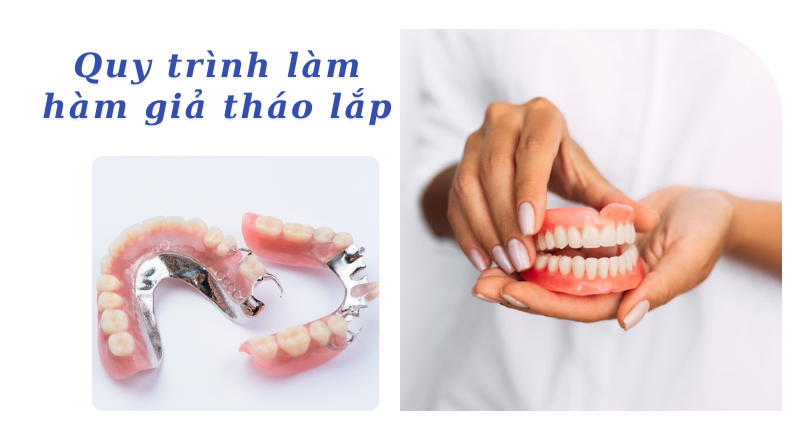

Cost of Removable Dentures: What You Need to Know
Removable dentures are a common restorative solution, especially for seniors or those with multiple missing teeth. However, the cost is a significant consideration.
Factors Affecting the Cost:
- Denture materials:
- Plastic teeth: Most affordable but lower in durability and aesthetics.
- Porcelain teeth: Higher aesthetics and durability, but more expensive.
- Denture base: Metal bases (titanium, alloys) are more durable and cost more than plastic bases.
- Type of denture:
- Partial dentures: Replace several missing teeth, more affordable.
- Full dentures: Replace all teeth on one arch, higher cost.
- Number of teeth to replace: The more teeth, the higher the cost.
- Oral condition: Pre-treatment for oral diseases will increase the total cost.
- Dental clinic: Reputable clinics with skilled dentists and modern equipment may charge more.
Reference Price List at Amanda Dental Clinic
Below is the price list for removable dentures at Amanda Dental for your reference:
| REMOVABLE DENTURES TREATMENT | ||
| Service | Unit | Price (VND) |
| Full removable denture | ||
| Standard acrylic denture base | 01 Arch | 2,500,000 |
| Flexible acrylic denture base | 01 Arch | 3,500,000 |
| Denture repair, add clasp | 01 Time | 500,000 |
| Add acrylic tooth | 01 Tooth | 300,000 |
| Add porcelain tooth | 01 Tooth | 500,000 |
| Partial denture | 01 Arch | 2,500,000 |
| Metal framework denture | 01 Arch | 4,500,000 |
Care and Maintenance of Removable Dentures
Proper care and maintenance of dentures are essential to prolong lifespan and maintain oral health:
- Clean dentures after each meal and before bedtime using salt water or vinegar solution, followed by brushing with a soft-bristle brush. Avoid alcohol or acid-based cleaners.
- Attend regular checkups for adjustments and early issue detection to extend durability and comfort.
- Over time, dentures may loosen due to gum or bone changes. Adjustments or replacements ensure proper fit and function.
- Avoid biting hard or chewy foods. Do not use dentures to bite on hard objects to prevent cracks or deformation.
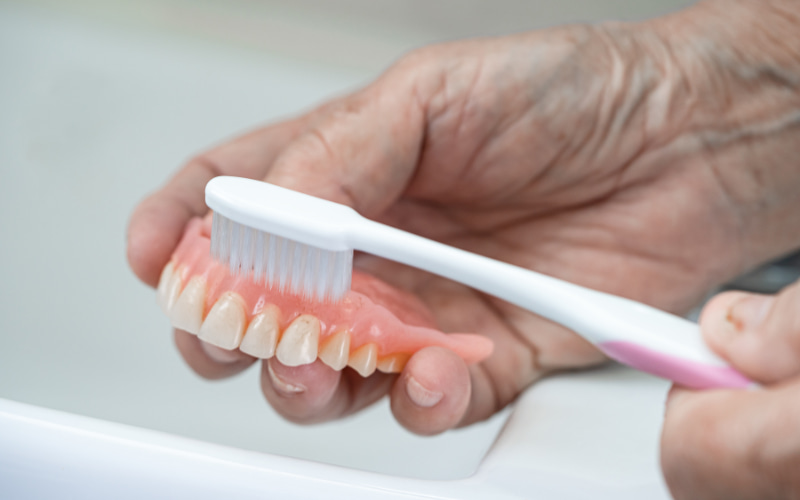
Removable Denture Restoration at Amanda Dental Clinic
Amanda Dental Clinic is a reputable provider of dental implant services with three key criteria: restoring chewing function, achieving aesthetics, and ensuring durability.
Experienced and professional doctors: Patients receive thorough consultation and optimal, cost-effective, and safe treatment plans.
Modern technology and quality materials: Equipment is state-of-the-art, and all materials are sourced from trusted international brands.
Professional process: The entire procedure follows Ministry of Health standards for safety and effectiveness.
Reasonable pricing with promotions: Affordable for a wide range of customers, with regular discounts and promotions.
Thoughtful warranty policy: A dedicated warranty ensures customer satisfaction throughout the use of dentures.
In summary, removable dentures are a popular restorative solution, especially for seniors or those with limited finances. To ensure effectiveness and longevity, choosing a reputable dental clinic, following dentist guidance, and maintaining proper oral hygiene are essential.




